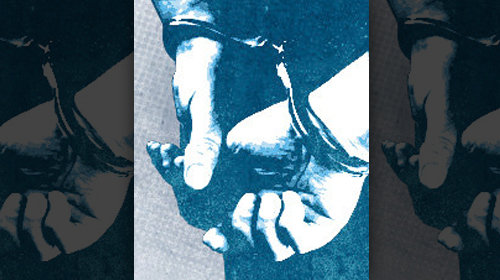Hitting Two Birds with One Stone: Strategies for Addressing the Indigent Defense Crisis and Overincarceration


Originally posted by .
Earlier this year, the Orleans Parish Defenders Office (OPD), which represents more than 80 percent of criminal defendants in Orleans Parish and handled 30,000 cases in 2011, faced a particularly severe fiscal crisis. The office fired a third of its staff and effectively slashed pay for those who remained. Private contract lawyers handling death penalty and conflict cases stopped getting paid. Entire divisions of the office were cut. , though their lives and liberty were on the line. Funding for indigent defense in New Orleans relies, in part, on collection of traffic fines, as well as court fees paid by indigent defendants who plead guilty or are convicted at trial. In recent months, the office has been able to rehire a handful of lawyers after lawmakers supplemented the indigent defense budget by . And two weeks ago, OPD filed a lawsuit alleging that New Orleans Traffic Court has shortchanged indigent defense between $2.4 million to $6.7 million since 2007.
The persistent underfunding of indigent defense systems in the United States for the last 50 years has occurred on the watch of our state courts and our profession. As we prepare to commemorate the 50th anniversary of on March 18, 2013, all of us must know that when this chapter in the history of the American justice system is written, it will not be a pretty picture.
After first to prospective injunctive relief for grossly underfunded public defender systems in 1989, the federal courts to enforce the , citing abstention concerns. As a result, since 1992, almost all significant systemic challenges to underfunded public defender systems have occurred in state courts. The principal goal of this first generation of state court litigation was to increase funding for indigent defense systems around the country. In better economic times, this goal was difficult, to say the least, since legislatures and occasionally the executive branch, rather than the courts, appropriate funds for state agencies. The task is Herculean during the current budget crisis, when state courts are turning to desperate measures to generate revenue, such as aggressively collecting fines and fees off the backs of the poor.
That first generation of systemic indigent defense litigation may have come to an end with the 2009 publication of the American Bar Association's ‚Äú,‚ÄĚ which authorize, and indeed compel, public defenders with excessive caseloads to refuse to take additional assignments. The first case applying the ‚ÄúEight Guidelines,‚ÄĚ , decided by the Missouri Supreme Court on July 31, 2012, specifically authorized public defenders in that state to refuse to accept additional case assignments in the event that their caseloads become unmanageable.
The principal goal of the second generation of indigent defense litigation should now be to significantly decrease the caseloads of overburdened public defenders, which can be done by pushing legislatures to decriminalize low level offenses that do not threaten public safety. The confluence of the current state budget shortfalls, lower crime rates nationwide, and at least two decades of reforms and evidence-based alternatives to incarceration, make this the perfect time for such litigation to serve as an incentive for smart criminal justice reform. This kind of indigent defense litigation may present an unprecedented opportunity to help undo forty years of "tough on crime" policymaking that has resulted in a crisis of mass incarceration across the United States.
Earlier this year, Maryland’s highest court : under state law, poor people have a right to an attorney before having their bail set by the court. After considering the price tag associated with this ruling for defenders alone, the quite sensible response from state lawmakers was: Don’t send so many people to jail in the first place. Legislators then passed a series of reforms including pretrial diversion and increase in the number of offenses that will be handled by criminal citation instead of arrest and detention. The danger is that such reforms can result in people getting criminal convictions, albeit convictions that carry non-incarceration sentences, without counsel. Ultimately, it would have been better for lawmakers to have declassified certain petty offenses that our civil justice system could address. That said, it was a step in the right direction.
Indigent defense reform litigation in Missouri may also result in fewer people being sent to prison. In Waters, the Missouri Supreme Court specifically authorized trial judges faced with an overburdened public defender organization‚Äôs refusal to accept additional cases to triage cases on their dockets so that those alleging the most serious offenses are given priority, even if that means other categories of cases are continued or delayed. The court then pointedly noted that such triaging might ‚Äúresult in the release of some offenders because of a violation of their rights to a speedy trial.‚ÄĚ In short, it will now be up to the Missouri Legislature to decide whether it will provide adequate resources to ensure competent and effective representation by the Missouri public defender in the plethora of less serious cases in which counsel is now required, or simply decriminalize such offenses altogether.
The lesson here is that advocates of reform should now seriously consider marrying indigent defense reform efforts with the work of ending mass incarceration. If, in fact, the prison remedy is no longer on the table for thousands of low risk offenders as a result of underfunded indigent defense systems, policymakers may well be compelled to make alternatives to prison available for this population, or even to declassify certain offenses that need not be criminalized in order to protect our public safety. This could ensure that public defender resources are sufficient for competent and effective representation of higher risk offenders.
Learn more about indigent defense: Sign up for breaking news alerts,, and .

